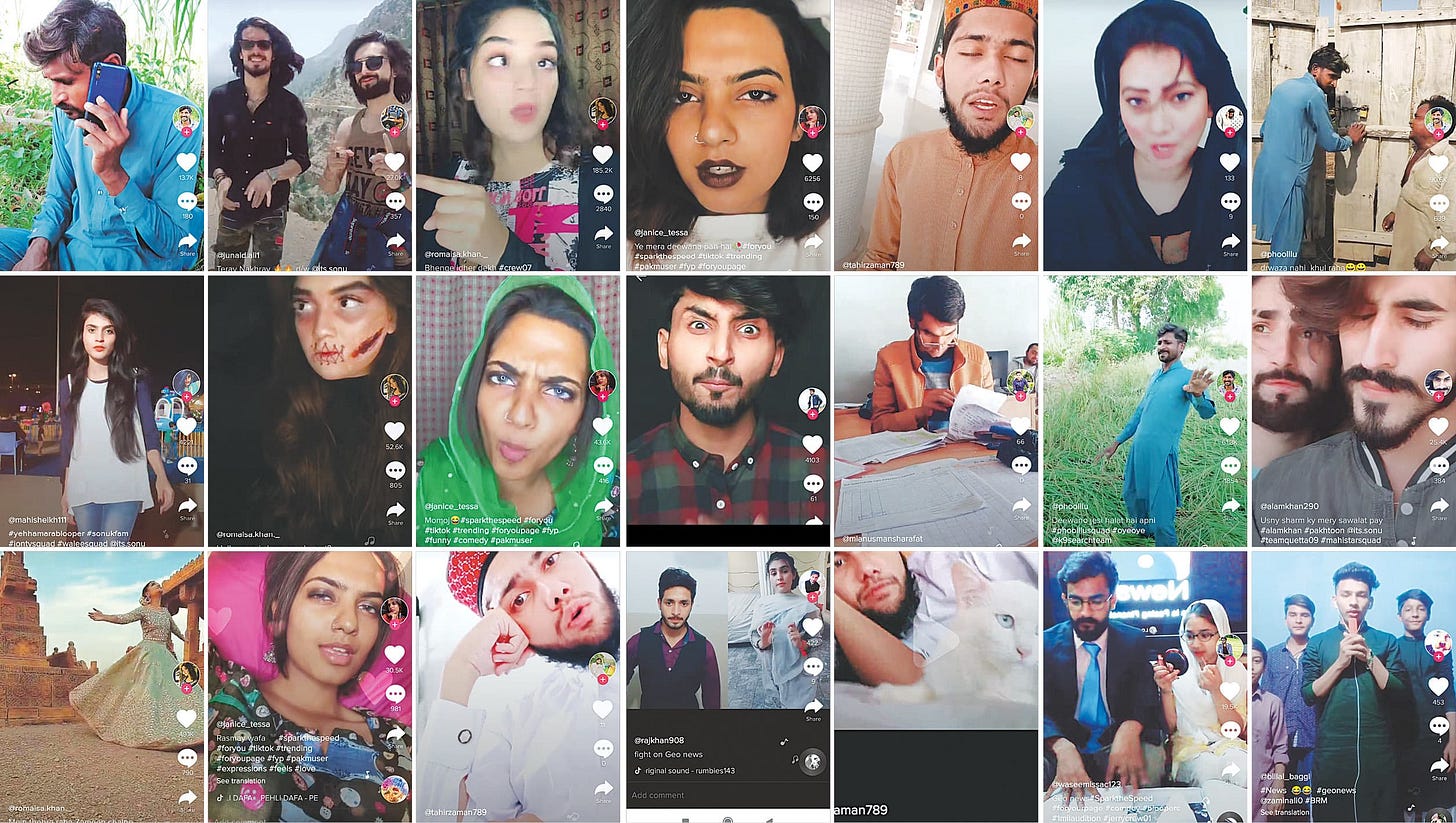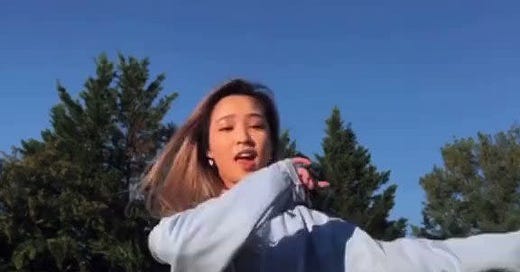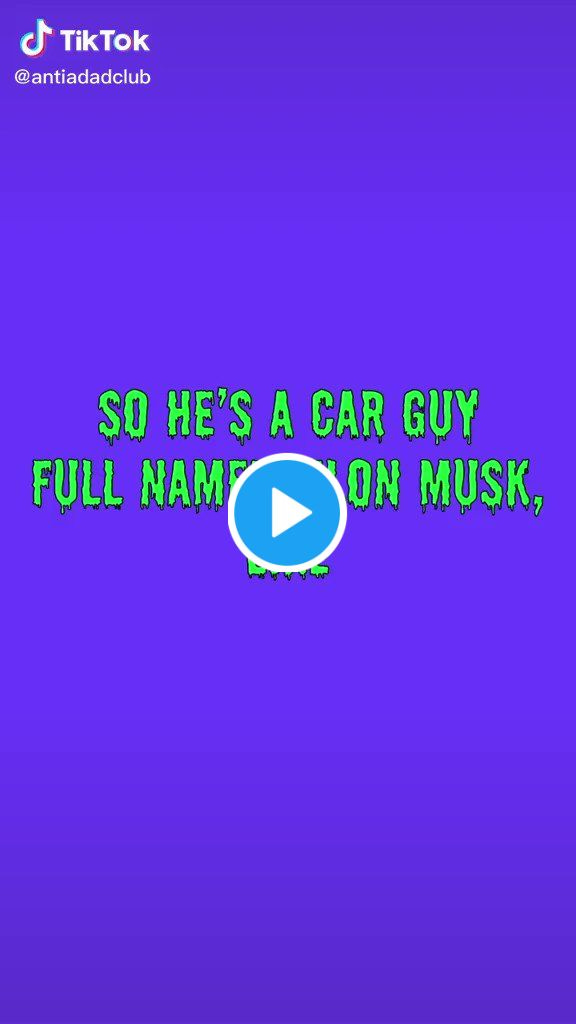TikTok Newsletter 16
🇵🇰 The Pakistan Ban 🥤The Anti Advertising Advertising Club ⚖️ TikTok for Good
Hello!
Here is your weekly dose of TikTok related news and infos. I am starting off with a public service announcement: In the coming weeks together with my dear colleague Chris Köver from Netzpolitik.org i will work on a scientific study analyzing international left-wing accounts and actors and their communication strategies on TikTok for Rosa Luxemburg Foundation. If you have great examples, ideas or just want to chat about it. Please write. Thx!
This week we will talk about:
🇵🇰 The Pakistan Ban
🥤The Anti Advertising Advertising Club
⚖️TikTok for Good
- -
🇵🇰 The Pakistan Ban - and the app's growth within Pakistan's lower middle-class

Pakistan has banned video-sharing platform TikTok in the country after a "number of complaints from different segments of the society against immoral/indecent content on the video-sharing application," the Telecommunication Authority (PTA) said in a statement. (Deutsche Welle, October 10)
Pakistan's TikTok ban is about censorship, not China. That is the headline of a CNN article (October 13). A worthwhile text if you are still convinced that TikTok is all about the kids dancing. Quote: One expert, though, finds the TikTok ban to be a unique situation. The app's growth within Pakistan's lower middle-class — especially during the Covid-19 pandemic — has caught the government by surprise, according to Habibullah Khan, the founder of Penumbra, a digital marketing agency based in Karachi.
Khan, who has been following TikTok's rise in Pakistan, said that the voices of poor Pakistanis who were not well-represented on other social media platforms like Facebook and Twitter flocked to TikTok. "From May onwards you saw videos critical of rising food prices and critical of the government's related lack of governance showing up on the main feed," Khan said. "This was the first time that a 'truth' that could not be managed on social media was making it out to the public unfiltered." (CNN, October 13)
Dawn, Pakistan's oldest English-language newspaper, had a nice overview article in November 2019: What TikTok tells us about Pakistan. TikTok has been installed about 43 million times in Pakistan, making the country its 12th largest market, according to the research firm SensorTower, writes CNN.
🥤The Anti Advertising Advertising Club - Kill Brands; Get Paid

Marketing on TikTok is a thing. Thx Sherlock. If you are looking for use cases how brands act and interact on the platform you should check out the Good TikTok Creative newsletter. One use case per week. Anthony, one of the guys writing the newsletter, has a paid online course on teachable.com TikTok Marketing & Advertising 101. I am currently checking that one out. Seems to be good for starters.
If you want to cut the beginners guide and head straight to the masterclass you should check out MSCHF, founded in 2016, as a “brand,” “group” or “collective,” and their creations, which appear online every two weeks, called “drops.” (New York Times, January 30, 2020). One of their latest drops is the Anti Advertising Advertising Club. I stumbled over it by coming across this article: Tesla and Elon Musk are targets of new TikTok smear campaign paid by mysterious company (Electrek, October 12).
The idea is simple, clever and mean. And it shows that these people have understood TikTok and the entire attention game anyway. So basically MSCHF provides sounds that mock or harshly criticise several companies. If you as a creator use the sound, produce a TikTok and “hit the view count threshold” you get paid. TLDR: Kill Brands; Get Paid. Fast and furious. And probably not much more than a publicity stunt. Tesla, Comcast, Facebook and others will eventually die, but not because of this singular marketing micro-activism stunt. Nevertheless it is an interesting use case how to get attention in an oversaturated environment.
⚖️ TikTok for Good - hosted by BCW
Let´s skip the big question about what exactly is good and what exactly is evil and let´s talk a little bit about TikTok for Good. There are quite some international organizations and NGOs on TikTok. See the ultimate list in newsletter 13. And there are some impressive campaigns and challenges on the website too. Today TikTok held a little online session presenting best cases and some ideas from TikTok on how to make use of the platform for NGOs and others. According to TikTok around 700 people from 70 countries joined in. I was one of them.

The Red Cross Use case is well documented. Dante Licona has written extensively about it on the Medium publication Digital Diplomacy: We were the first global humanitarian organisation to partner with TikTok. Here’s what we learned so far. And on his own account: Coronavirus: How the Red Cross is using TikTok to keep Gen-Z safe. Dante repeated that there is no shortcut to success. You need to spend time on the platform, listen to the community and find your very own way. Agreed!

Saul Moross, Operation Manager at TikTok, shared a bunch of slides explaining how to activate the community. His presentation included a lot of “Call to Action” and “Draw attention” and “Gen Z” and “fresh”. Interesting to me was the constant reminder that TikTok is here to “bring joy”. Joy. Who is against that? I would probably stick to joy too. Unfortunately i had just scanned Google scholar for TikTok before which brought me to a research paper Spreading Hate on TikTok published in Studies in Conflict & Terrorism.

Don´t get me wrong. I am convinced that the platform is and can be utilized by organizations, individuals, houses, tribes or whatever to inform, to connect and to achieve something that most people would agree on is “good” like e.g. access to toilets for all. But a simplistic “Bring Joy” sounds a bit shallow to me.

I could not resist to google Matthias Lüfkens who was obviously hired by TikTok to moderate the session and who is Managing Director at BCW (Burson Cohn & Wolfe) a multinational public relations and communications firm with an interesting track record. Like carrying out public relations work for the last Argentine military dictatorship, a google smear campaign, astroturfing, etc. The Guardian wrote in 2002: Burson-Marsteller [In February 2018, parent WPP Group PLC announced that it had merged its subsidiaries Cohn & Wolfe with Burson-Marsteller] is the company that governments with poor human rights records and corporations in trouble with environmentalists have turned to when in crisis.
- -
Okay. That´s it. If you want more you can check my Twitter account: TikTok stuff for a substack newsletter or browse the archive. And please feel free to send feedback, questions, ideas, jobs, harsh criticism or cake. ✉️
Thx, Marcus






